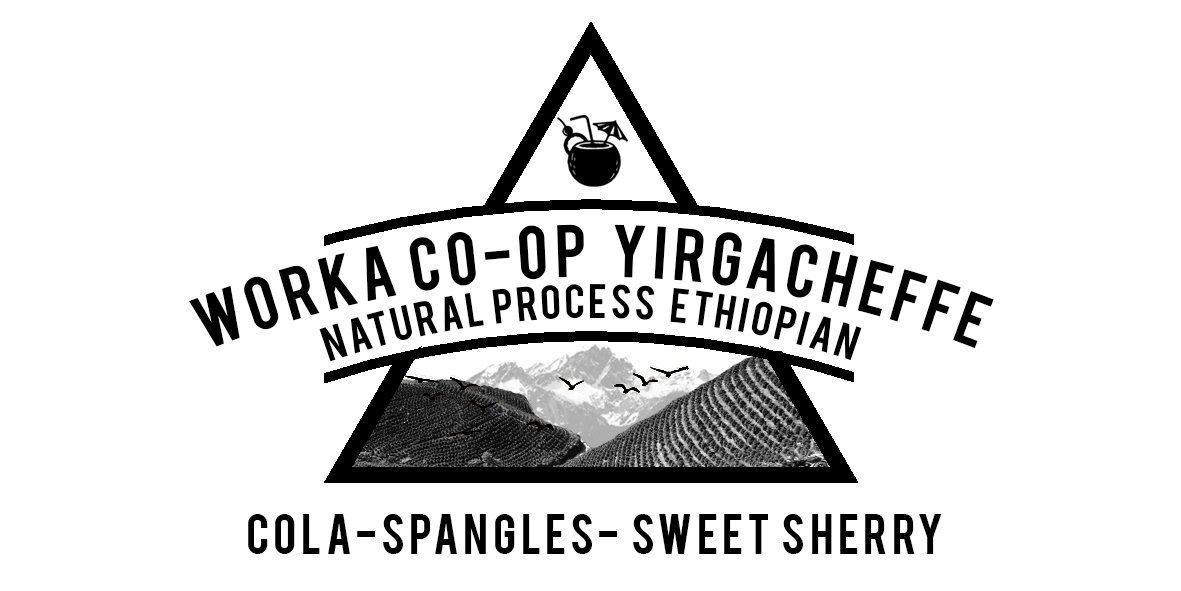Ethiopian Yirgacheffe Worka Co-operative
Ethiopian Yirgacheffe Worka Co-operative Natural Process, Filter Roast
One of the oddities of 2020 has been the combination of a slower-paced world and the push and pull of demand. We bought and paid for this coffee in March and it literally took until the end of October to arrive in the roastery. East Africa has had more than its share of troubles this year, with you know what adding to the mix. On the positive side of things, this is a fantastic natural and a super tasty complex brew.
Top Trumps
Country: Ethiopia
Region: Yirgacheffe
Co-operative; Worka (1745 members of which 314 are women)
Manager: Shibru
District: Worka Kebele, Gedeb, Gedeo Zone
Process: Natural
Varietals: Heirloom
Harvest: November to February
Rainy season: March to September with a dry month in May.
Altitude: 1650-2700 Meters (2700 is incredibly high)
Number of sites: 1 (there is a second site in construction at the moment)
Yirgacheffe Coffee Farmers Union: Joined in 2010.
Roast; Light filter.
Cup potential.
Aromatics: Cola & Savoury Body: Silky Acidity: Sweet sherry
This coffee is full of ripe fruit sugars like something out of a 1980’s sweet shop. Cola Cubes, Spangles and ripe brown fruit sugars, carob, a little floral note, and long citrus finish.
Recipe: we have been brewing this at a starting point of 65g per litre.
This is very extractable as espresso and can work in and out of milk. Due to the light nature of the roast, be prepared to make a longer extraction, and brew a little hotter. This could look something like 17g into 35-40g of espresso in 28-38 seconds. Taste it…and decide what you like best from the coffee equipment that you have.
Here is a little bit more about the Worka co-operative.
Despite being a relatively new co-operative, Worka is already a respected name amongst us roasters. It was created in 2006, after the creation of the Gedeb district, which used to be a part of Kochere. Since the split, the local government assisted the community in building Worka washing station. Worka started selling coffee to private buyers or “akrabis” in the Kochere and Yirgacheffe districts. They became part of YCFCU in 2010. According to the members, they stay with the union because they see themselves as part of the business. They are offered training from farming techniques to personal finances and can improve their production methods and save money for the offseason.






